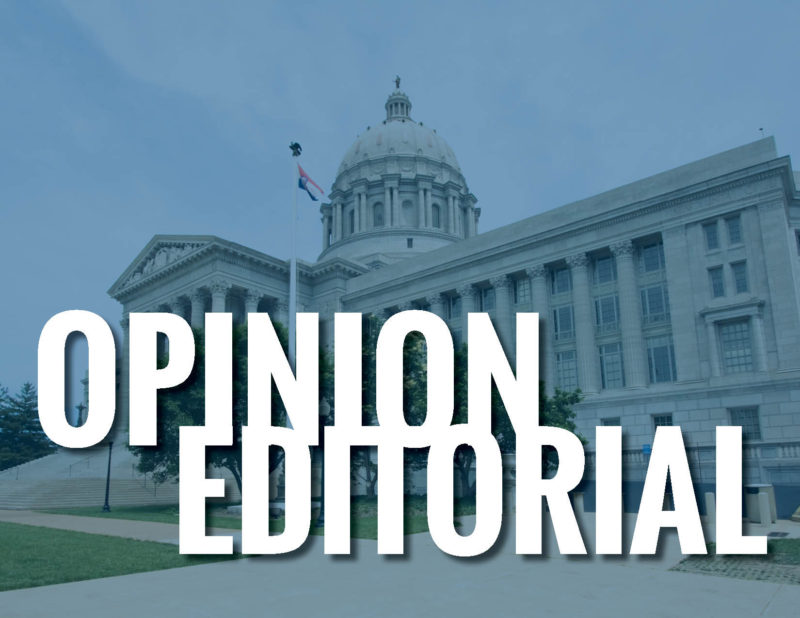This article originally appeared in the Fall 2019 edition of The Missouri Times Magazine.
Missouri voters have approved five exceptions to the constitution’s general prohibition against gambling. These exceptions allow the Missouri legislature to enact laws to permit bingo and lottery games, pari-mutuel wagering on horse races, casino gambling, raffles, and sweepstakes.
These exceptions contain conditions and restrictions on who or where these games may be authorized by law. Of these five gaming activities, only the Missouri Lottery, Art. 3, Sec. 39(b), is allowed to conduct games of chance on a state-wide basis.
In comparison:
- Bingo games can only be conducted at certain times and only by not-for-profit entities- Art. 3, Sec. 39(a);
- Pari-mutuel wagering of horse races can only be conducted at a licensed horse track in the state- Art. 3, Sec. 39(d);
- Casino gambling can only be conducted on a licensed “excursion” gambling boat located within 2,000 feet of the Missouri or Mississippi Rivers- Art. 3, Sec. 39(e); and,
- Raffles and sweepstakes can only be conducted by a nationally recognized charitable or religious entity- Art. 3, Sec. 39(f).
So Missouri law is clear: The only entity that can conduct games of chance anywhere within the state is the Missouri Lottery. Current lottery games generate approximately $340 million annually for Missouri education programs.

New lottery game options on the horizon with potentially big payoffs for Missouri education programs include Video Lottery, Sports Book Parlay kiosks, and I-Lottery. Combined, these three games have the potential to nearly double annual revenue for Missouri Education programs from lottery gameplay.
The biggest revenue producer of the new games, Video Lottery, is estimated to generate $175 million annually for Missouri education programs within four years. Video Lottery Terminals, “VLTs,” offer lottery players a variety of games to choose from on a single terminal, guarantee the player a fair game with multiple plays and payout levels for winning plays, and are connected to a state-of-the-art centralized computer system capable of monitoring VLT game plays in real-time. VLT game plays would be limited to a max wager of $5 per play and a max payout for a winning play of $1,000.
VLTs would be placed in age-controlled environments such as bars and taverns with liquor by the drink licenses, fraternal and veteran’s clubs, truck stops, and other locations that provide an isolated area where VLTs are only accessible to persons 21 years and over to prevent underage access and play. All VLT locations would have to be under constant video and adult surveillance and supervision during operational hours. This level of oversight and enforcement is tougher than any currently required by Missouri law.
Additionally, VLT manufacturers, operators, and retailers would be required to undergo an intensive background investigation and acquire a license from the Missouri Lottery to use VLT machines. Penalties for misuse or allowing underage play can lead to major fines, suspension, and ultimately revocation of licenses to offer VLTs and other lottery products as well as selling alcohol.
In addition to the new revenues for Missouri education programs, VLTs are projected to generate millions in economic development from investment and new jobs:
- Up to $11 million annually in new sales taxes;
- Up to $463 million in new private investment; and,
- Over 21,000 new direct and indirect jobs during the four year start-up period.
In addition to the direct revenues to Missouri education programs and the economic development benefits, VLTs would displace gray gaming devices that put Missouri retailers in legal jeopardy of losing their businesses. These machines skirt the law with claims of not being games of chance because they offer the player a “pre-reveal” or “look-forward” option. But regardless of the gimmick, in reality, they are merely the next generation of illegal gambling games deemed illegal in 1984 by the Missouri courts and more recently in 2017 by the Missouri Gaming Commission.
Missouri legislators have an opportunity to generate new revenues for Missouri education programs and eradicate illegal gambling machines by approving the use of video lottery terminals to conduct lottery games.

Charles Andy Arnold is a veteran lobbyist with longstanding experience in state gambling policy.





